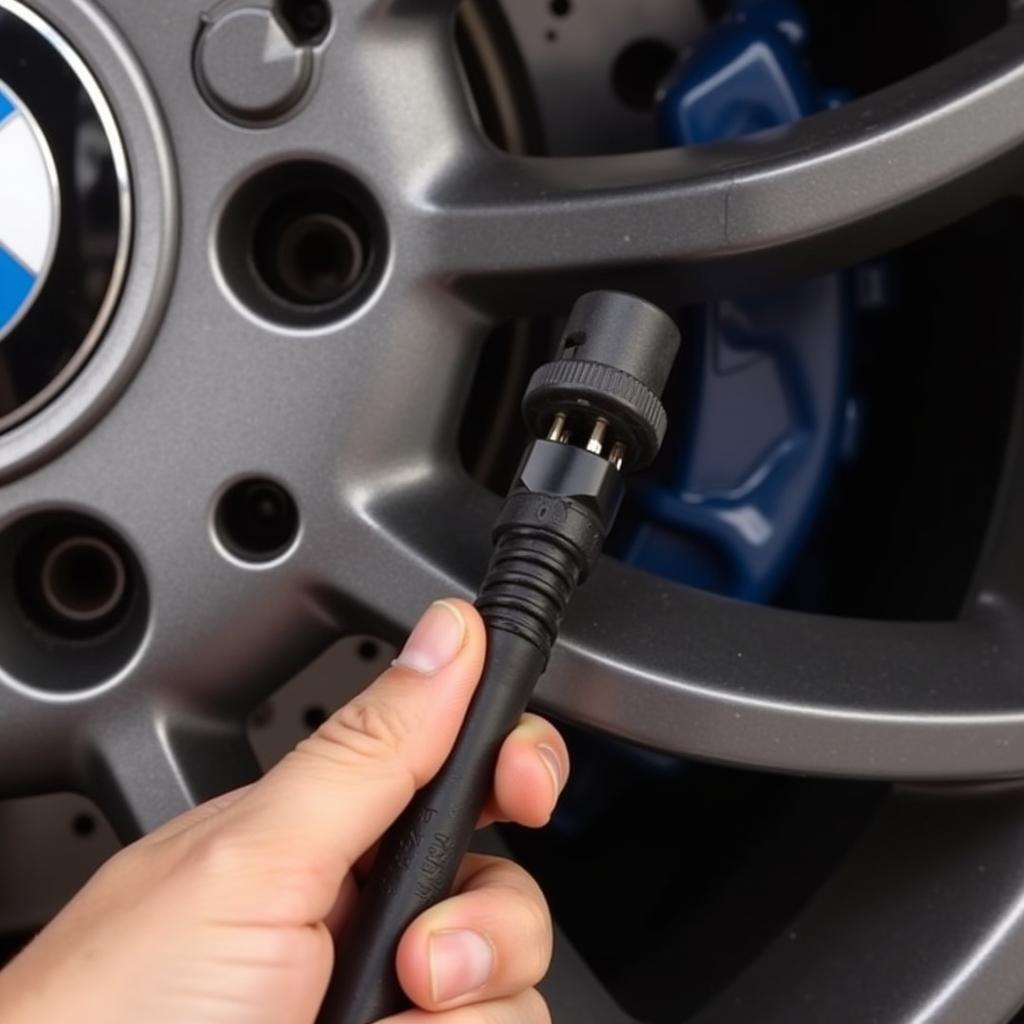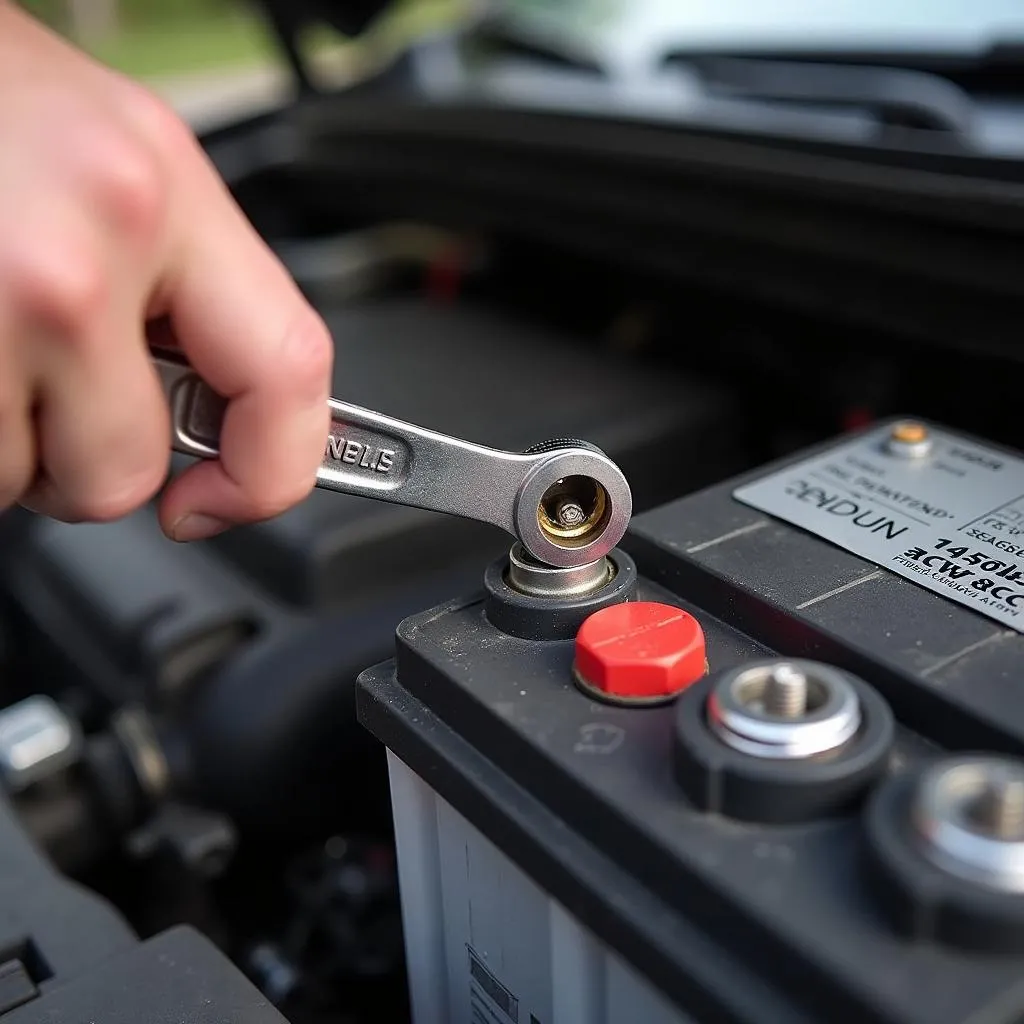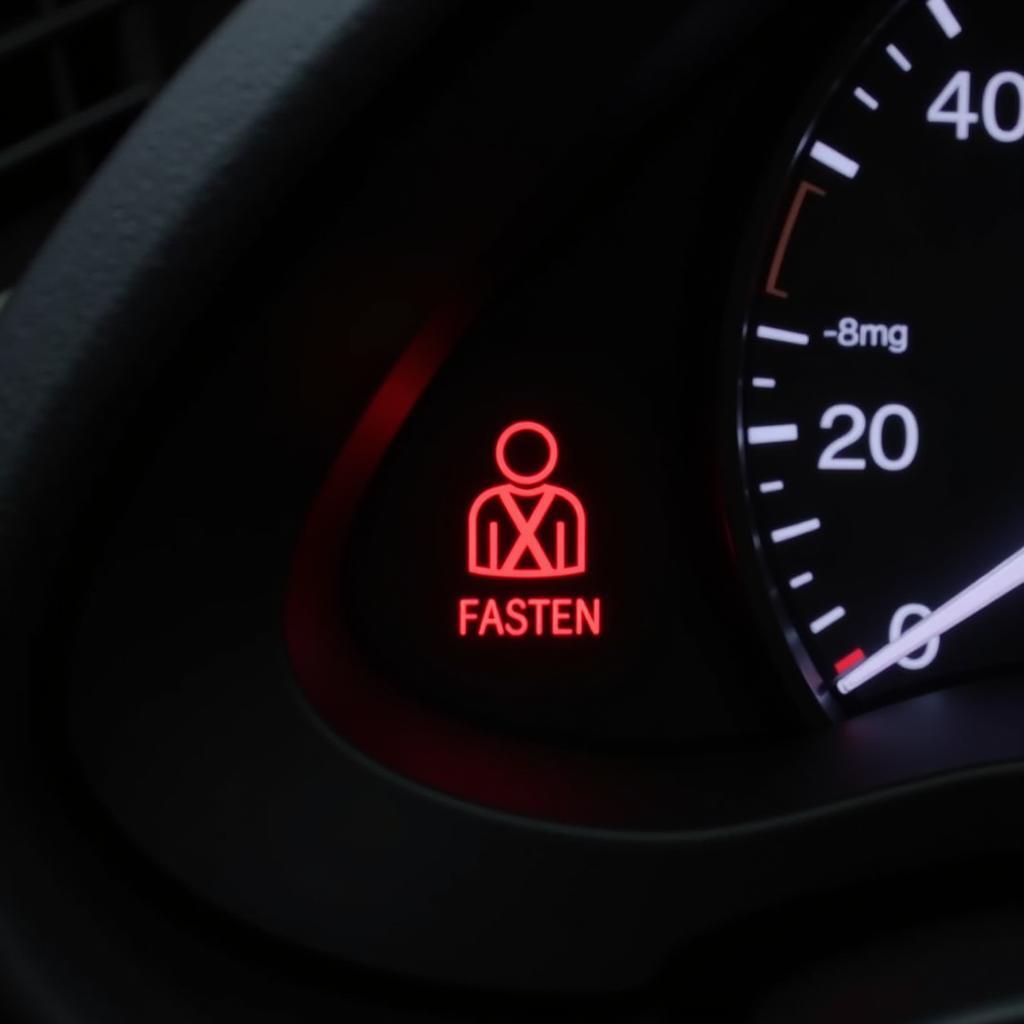The BMW ABS brake warning light is a safety feature that alerts you to a potential problem with your car’s Anti-lock Braking System (ABS). When this light illuminates on your dashboard, it means the ABS control module has detected an issue and your vehicle may not be able to prevent wheel lockup during hard braking. This article explores the common causes of a BMW ABS brake warning light and provides insights into how you can address this issue, from diagnosis to potential solutions.
Understanding Your BMW ABS System
Your BMW’s ABS is a crucial safety system that prevents the wheels from locking up during sudden braking. This system allows the driver to maintain steering control and reduces the risk of skidding. The ABS system comprises several components, including:
- Wheel speed sensors: These sensors monitor the rotational speed of each wheel.
- ABS Control Module: This module receives data from the wheel speed sensors and controls the ABS system’s operation.
- Hydraulic Control Unit: This unit regulates brake fluid pressure to each wheel based on input from the ABS control module.
Common Causes of a BMW ABS Brake Warning Light
Several factors can trigger the ABS brake warning light on your BMW. These can range from minor issues to more complex problems requiring professional attention. Here are some of the most prevalent culprits:
- Faulty ABS Wheel Speed Sensor: One of the most common reasons for the ABS light to illuminate is a malfunctioning wheel speed sensor. These sensors can fail due to damage, dirt, debris buildup, or corrosion.
- Low Brake Fluid Level: Insufficient brake fluid levels can disrupt the ABS system’s hydraulic pressure, triggering the warning light. This could indicate a brake fluid leak, which requires immediate attention.
- ABS Control Module Malfunction: The ABS control module, responsible for the system’s operation, can sometimes encounter electrical or software issues, leading to a warning light.
- Damaged ABS Wiring or Connectors: Corrosion, wear and tear, or physical damage to the ABS system’s wiring and connectors can disrupt communication between components, leading to system errors and the warning light.
- Brake Pad Wear: While not directly related to the ABS system, worn-out brake pads can sometimes trigger the ABS light in conjunction with the brake pad wear indicator light. This is because extremely worn pads can affect brake fluid levels and sensor readings.
 BMW ABS Wheel Speed Sensor
BMW ABS Wheel Speed Sensor
Diagnosing the Issue
Identifying the root cause of the ABS brake warning light requires proper diagnostics. Here are some steps you can take:
- Check Warning Lights: Pay attention to any other warning lights illuminated on your dashboard alongside the ABS light. For instance, the presence of the DSC (Dynamic Stability Control) light might indicate a related issue.
- Visual Inspection: Visually inspect the brake fluid level in the reservoir. If the fluid level is low, there may be a leak in the braking system.
- Consult a Professional: For a comprehensive diagnosis, it’s recommended to visit a qualified BMW mechanic or use a specialized BMW diagnostic scanner. These scanners can read the ABS system’s fault codes, providing precise information about the underlying problem.
“Many times, a BMW ABS light is accompanied by other warning lights which can help pinpoint the problem. Always get a full diagnostic scan to determine the exact cause,” says Michael Carter, Lead Technician at Bavarian Autohaus.
Potential Solutions
Depending on the diagnosis, addressing the ABS brake warning light might involve one or more of the following solutions:
- Replacing Faulty Components: If the diagnosis reveals a faulty ABS wheel speed sensor, ABS control module, or damaged wiring, replacing these components is typically necessary.
- Addressing Brake Fluid Leaks: In case of a brake fluid leak, identifying and repairing the source of the leak is crucial to restore proper brake system function. This might involve replacing brake lines, calipers, or other components.
- Software Updates: In some instances, the ABS control module might require a software update to address bugs or compatibility issues.
- Resetting the ABS System: After replacing components or addressing underlying issues, resetting the ABS system using a diagnostic scanner might be necessary to clear error codes and resume normal operation.
Addressing the BMW ABS Brake Warning Light
Remember that attempting to diagnose and repair complex automotive systems without proper knowledge and expertise can be risky. If you’re unsure about any aspect of addressing the ABS brake warning light on your BMW, seeking assistance from a qualified mechanic is always recommended.
BMW ABS Brake Warning Light: Frequently Asked Questions
Can I still drive my BMW with the ABS light on?
While you might still be able to drive your car, remember that your ABS system may not function correctly. Avoid hard braking and seek immediate attention from a qualified mechanic.
How much does it cost to fix an ABS brake warning light on a BMW?
The cost of repair varies significantly depending on the underlying cause and the required repairs. Simple fixes like replacing a wheel speed sensor might be relatively inexpensive, while more complex issues like a faulty ABS module could be significantly more costly.
How do I know if my BMW needs a brake fluid flush?
It’s generally recommended to flush your BMW’s brake fluid every 2 years or as specified in your owner’s manual.
Can I check and add brake fluid myself?
Yes, you can check the brake fluid level in the reservoir, but it’s generally recommended to have a qualified mechanic handle brake fluid top-ups and flushes to avoid contamination and ensure proper bleeding of the system.
How can I prevent future ABS brake warning light issues?
Regular maintenance plays a crucial role. Following your BMW’s recommended service intervals, including brake inspections and fluid flushes, can help prevent many ABS-related problems.
If you are experiencing issues with your BMW ABS brake warning light, these links might be helpful:
- bmw abs dsc and brake warning light 323 i
- bmw z4 abs brake warning light
- bmw x5 abs brake warning light
Ignoring a BMW ABS brake warning light can compromise your safety and potentially lead to more significant and costly repairs down the line. By understanding the common causes, taking prompt action, and seeking professional help when needed, you can ensure your BMW’s braking system remains in optimal condition for a safe and enjoyable driving experience.


